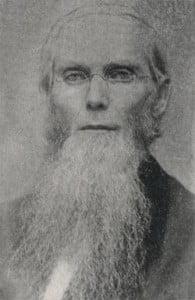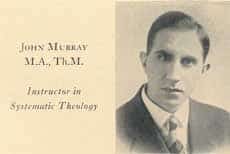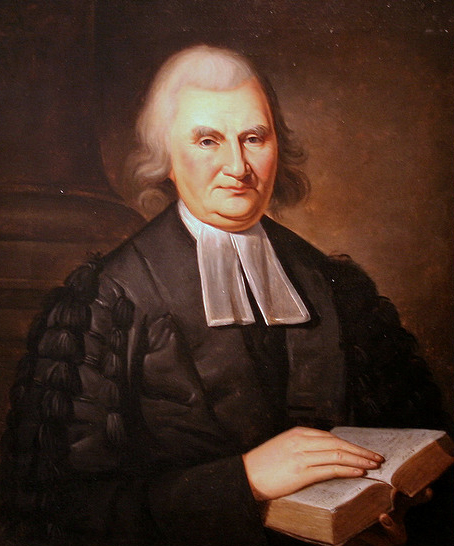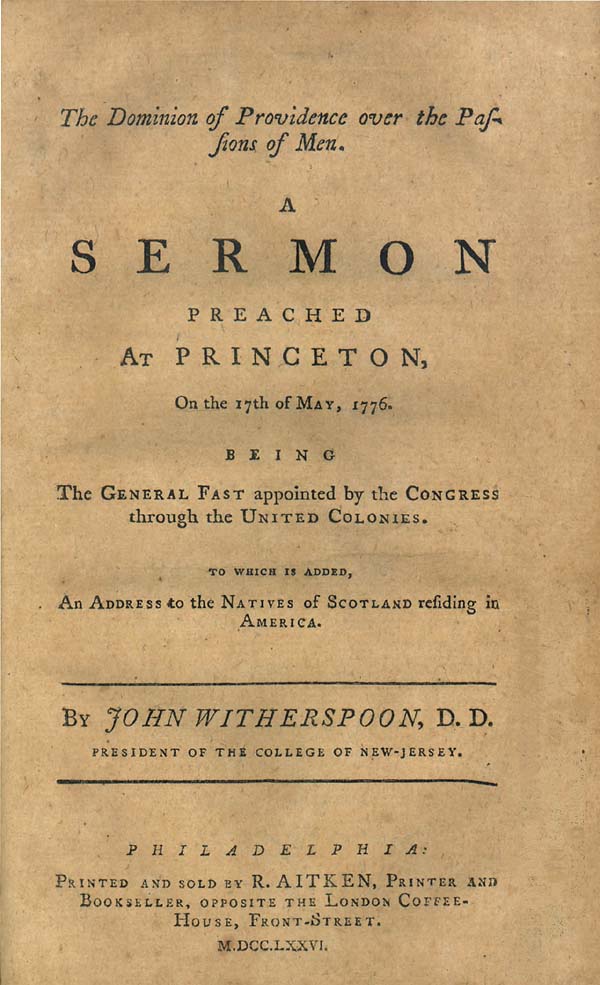An Odd Juxtaposition of Dates
The First General Assembly Held in America:
To Presbyterians, the American Revolution had been a holy war. And now with its winning, Christian Presbyterians could get back to growing the church. And that growth took place in a period of spiritual progress. From New York all the way south to the Carolinas, new settlements were begun, with Presbyterian missionaries and ministers being sent throughout the whole length of the land.
But as the churches and the presbyters became more and more distant from one another, there was a concern about attendance. In all the synods put together, over one hundred ministers were absent in any given year with only six of the churches presented by elders. In one synod, a new moderator was elected, and then excused when it became known that he had not been present for the previous eleven years. Clearly something had to be done.
The sixteen Presbyteries were organized into four separate synods in 1785. They were: Philadelphia, New York and New Jersey, Virginia, and the Carolinas. Numerically, this meant that there were four synods, sixteen presbyteries, 177 ministers, 111 licentiates, and 419 churches.
It was on May 21, 1789, that the first General Assembly was held in the original city of Presbyterianism, Philadelphia. John Witherspoon was chosen to preach the first sermon of that assembly. The delegates chose the Rev. John Rodgers to be the first moderator. He had been trained back in the Faggs Manor Presbyterian Church under New Side Minister Samuel Blair.
Some housekeeping had to be done in light of the separation from England. No longer could the civil magistrate be considered to be the head of the church. So chapters in the Westminster Standards which put him as the head of the church were re-written in the light of the American victory in the American Revolution. No one denomination would any longer be considered a state church, whether it was Anglican, Roman Catholic, or Presbyterian. There was a separation of church from state.
And Denominational Deathknell:
Then, moving into a later century, we note that in “1918 three churches united to form First Presbyterian Church, New York City. They called as pastor Rev. Mr. George Alexander, D.D., and as associate pastor, Dr. Harry Emerson Fosdick, a Baptist. On Sunday morning May 21, 1922, Dr. Fosdick preached a famous sermon titled: “Shall the Fundamentalists Win?” In this he contrasts the conservative and liberal views on the Virgin Birth, the inspiration of Scripture, the Atonement and the Second Advent of Christ and pleads for tolerance of both views within the church. In 1923 Dr. Fosdick gave the Lyman Beecher lectures on preaching before the Yale Divinity School, which were later published under the title: “The Modern Use of the Bible.” This material clearly sets forth the liberal beliefs of Dr. Fosdick which are at complete variance with clear Scriptural teaching.” [Historical Background and Development of the RPCES, by Thomas G. Cross, 1968]
Words to Live By:
We may never know whether Fosdick chose that specific date for the delivery of his infamous sermon, whether he intended with some note of irony, but clearly that sermon serves as a marker for all the many changes that have come since. As it is true for denominations and for local churches, so too every Christian is each day faced with decisions that may steer us in one direction or another. A decision to follow Christ or to follow self and its desires, which will it be?
“Blessed is the man that walketh not in the counsel of the ungodly, nor standeth in the way of sinners, nor sitteth in the seat of the scornful.
But his delight is in the law of the Lord and in His law doth he meditate.”—Psalm 1:1-2, KJV.



 In the spring of 1776, John Witherspoon preached his first sermon on political matters, about a month before he was elected to the Continental Congress. The sermon,
In the spring of 1776, John Witherspoon preached his first sermon on political matters, about a month before he was elected to the Continental Congress. The sermon, 